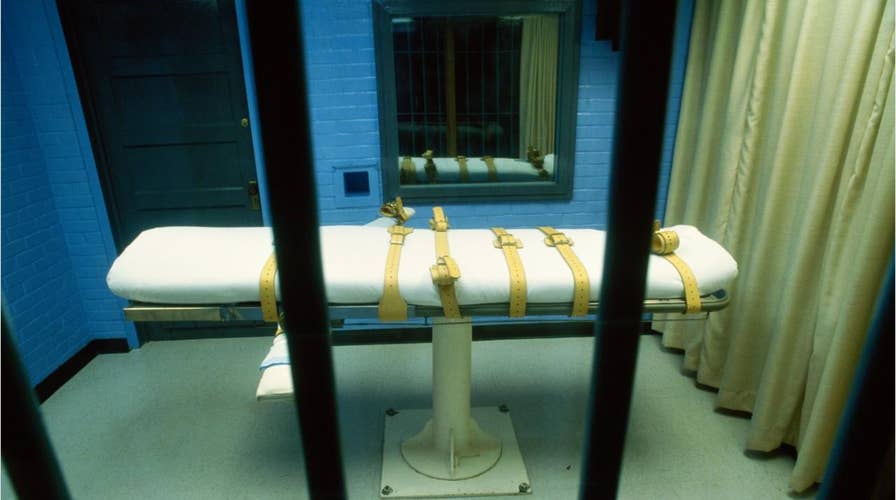Federal government to resume capital punishment for first time since 2003
Attorney General Bill Barr announced the federal government will resume capital punishment and plans to execute five inmates on death row for the first time since 2003.
The announcement Thursday by Attorney General William Barr that the federal government will resume executing death-row prisoners after a 16-year hiatus goes against the principles conservatives hold dear: limited government, fiscal responsibility, and the protection of the sanctity of human life.
The death penalty is a failed Big Government program that meets none of those values. Our federal government is failing by embracing it.
A lot has changed since the last federal execution in 2003.
FEDERAL GOVERNMENT TO RESUME CAPITAL PUNISHMENT, SCHEDULE EXECUTIONS FOR FIRST TIME SINCE 2003
New death sentences continue to decrease – by 60 percent since 2000. Since 2007, nine states have removed the death penalty from their books and another four have halted all executions.
As a result, 25 states now refuse to put anyone to death. Of those that still have capital punishment on the books, over a third have not used it in a decade or more.
In addition, last year was the fourth year in a row that the U.S. carried out fewer than 30 executions. All 25 executions in 2018 came from only eight states, with more than half of them from Texas alone. That’s a sharp decrease since the height of the system’s use in the late 1990s, with nearly 100 executions in a given year.
The tidal wave of opposition to the death penalty is bipartisan, with 11 state Republican lawmakers introducing bills to repeal the death penalty so far this year.
What changed? The age of information. Big data brought a new understanding of the costs associated with the death penalty, the likelihood of a wrongful conviction, the arbitrariness and bias that plagues death rows, and the lack of a deterrent effect provided by this system.
That’s not all. Many murder victims’ family members have banned together to speak out against the harm this system produces, and they’ve been joined by people of all faiths, former members of law enforcement, judges, prosecutors, defense attorneys, and activists.
And this isn’t part of a liberal agenda. The tidal wave of opposition to the death penalty is bipartisan, with 11 state Republican lawmakers introducing bills to repeal the death penalty so far this year.
So why is the federal government bucking these pervasive trends and resuming executions? It’s really unclear.
The federal death penalty system encompasses all of the problems we find at the state level. Though many think the federal system is reserved for the “worst of the worst” crimes like treason, espionage, or terrorism, the reality is only one person on the federal death row is there for one of those crimes.
Just three states – Virginia, Texas and Missouri – are responsible for nearly half of the current federal death sentences, and just 31 of 94 federal judicial districts are responsible for all current sentences.
Translation: the location where the crime was committed is the leading determinate for who gets the death penalty at both the state and federal levels.
Take the case of Marvin Gabrion. His was a federal death penalty case only because the crime was committed on federal property. Had the crime occurred only 100 so feet away, this case would not have been elevated to the federal level.
While many of the same problems exist in the federal death penalty system as those at the state level, the federal system has even fewer reviews.
At the federal level, defendants receive a single post-conviction proceeding and are often denied a right to appeal. That means there’s an even greater chance that an individual could be wrongfully convicted and executed at this level.
Given that we already know that one person has been exonerated from death row for every 10 executions, that’s a terrifying thought.
Support for the death penalty tends to run a mile wide and an inch deep – though public support has been shrinking for years. Upon examining the realities of how the death penalty operates in practice, the majority of people struggle to support it.
CLICK HERE TO GET THE FOX NEWS APP
With a national average homicide clearance rate of only 51 percent, the resources spent on the death penalty would be better directed towards solving more violent crimes or on programs that actually work to deter crime in the first place.
The opportunity costs involved with the death penalty, coupled with the likelihood of a wrongful conviction, are the reasons so many conservatives like me are turning against it.

